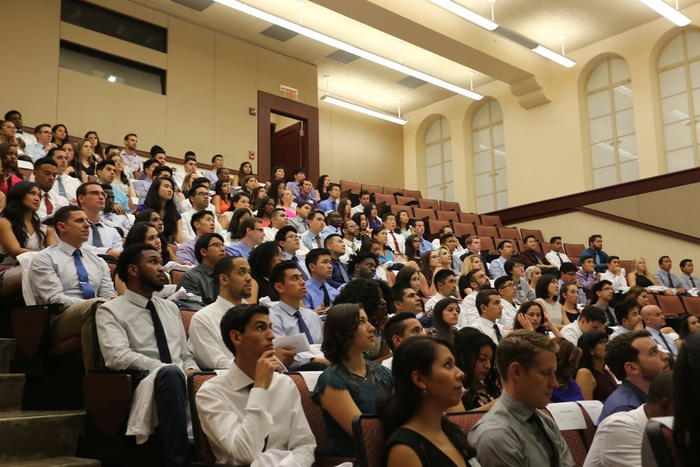Link to abstract when embargo lifts at 5 p.m. ET on May 2, 2022: https://www.acpjournals.org/doi/10.7326/M21-4312

Credit: UCLA Health
Link to abstract when embargo lifts at 5 p.m. ET on May 2, 2022: https://www.acpjournals.org/doi/10.7326/M21-4312
New UCLA-led research finds that in states with bans on affirmative action programs, the proportion of students from underrepresented racial and ethnic minority groups in U.S. public medical schools fell by more than one-third by five years after those bans went into effect.
The findings are particularly timely given medical schools’ increasing emphasis on health equity, including a push to ensure greater diversity among physicians in the workforce.
The study will be published May 3 in the peer-reviewed journal Annals of Internal Medicine.
“We know that a more diverse physician workforce leads to better care for racial- and ethnic-minority patients,” said Dr. Dan Ly, the study’s lead author, an assistant professor of medicine in the division of general internal medicine and health services research at the David Geffen School of Medicine at UCLA. “But we have made such poor progress in diversifying our physician workforce.
“Our research shows that bans on affirmative action, like the one California passed in 1996, have had a devastating impact on the diversity of our medical student body and physician pipeline.”
The researchers examined enrollment data from 1985 through 2019 for 53 medical schools at public universities, focusing on students from underrepresented racial and ethnic groups: Black, Hispanic, American Indian or Alaska Native, and Native Hawaiian or other Pacific Islander. The authors studied medical schools at public universities, not private ones, because states’ bans on affirmative action applied to public postsecondary institutions.
Of the medical schools, 32 were in 24 states without affirmative action bans. And 21 were in eight states that banned affirmative action during that period — Arizona, California, Florida, Michigan, Nebraska, Oklahoma, Texas and Washington. Those states’ affirmative action bans were enacted from 1997 to 2013; Texas’ ban was reversed in 2003.
In the year before the bans were implemented, underrepresented students made up an average of 14.8% of the total enrollment of those states’ public medical schools. By five years later, the research found, enrollment of underrepresented students at those schools had fallen by 37%.
The authors note some limitations to their analysis. The data may have also captured the indirect effects of affirmative action on undergraduate admissions, public discussion of affirmative action bans may have affected medical school enrollment even before the bans were implemented, some students may not have fully identified with the mutually exclusive racial and ethnic groups defined by the study, and the researchers did not assess the possibility that some schools without bans did not consider race or ethnicity in their admission decisions.
But the findings could lead to a better understanding of the lag in diversifying the medical student body and the physician workforce.
“As our country has spent the last two years weaving through the twin pandemics of racial health disparities amplified by COVID-19 and structural racism at large, our findings are critically important,” said co-author Dr. Utibe Essien, an assistant professor of medicine at the University of Pittsburgh. “As we observed, affirmative action bans have resulted in a loss of underrepresented physicians, who could have been at the front lines of caring for vulnerable populations throughout the pandemic and helping to alleviate disparities in care.
“My hope is that our findings will help provide policymakers with the tools to push back against affirmative action bans, not just for the diversity of the physician workforce, but for the equal and just health of our society.”
The study’s other authors are Andrew Olenski of Columbia University and Dr. Anupam Jena of Harvard University.
Journal
Annals of Internal Medicine
Method of Research
Data/statistical analysis
Subject of Research
People
Article Title
Affirmative action bans and enrollment of students from underrepresented racial and ethnic groups in U.S. public medical schools
Article Publication Date
3-May-2022




